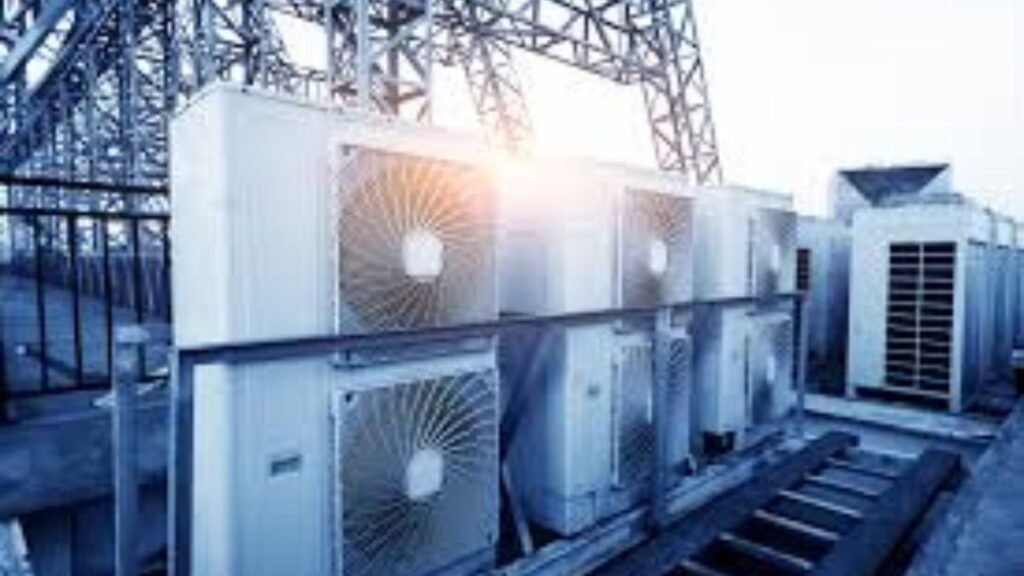Air conditioning, heating, and ventilation are essential aspects of a house. By maintaining the ideal temperature, they make sure we don’t freeze or produce sweat excessively. When your HVAC system, such as those provided by jadex hvac company, is operating properly, the air inside your home or place of business is free from dust, smoke, and heat. It has been demonstrated that HVAC systems may consume as much as forty percent of power. These days, they are more effective than earlier models and can save your energy expenses by 30–40%. As they maintain virus-free and clean atmospheres, HVAC systems are also effective.
Table of Contents
Types Of HVAC Systems
To guarantee comfort all year long in your house or place of business, selecting the appropriate HVAC system is crucial. The ideal solution depends on several factors, including your location, the size of your structure, and any particular heating or cooling needs you may have. Here, we examine the many HVAC system types that are frequently in stock, along with their special advantages.
1. Hybrid Heat Split System
For families wishing to lower energy expenses without sacrificing interior comfort, a hybrid heat split system is a cutting-edge and incredibly effective option. The heat pump in this unit efficiently heats or cools the air by circulating coolant via pipes. It also has an evaporator that helps with air circulation and a furnace for extra heating capacity. To distribute air uniformly throughout your home, this system mostly depends on piping. The capacity to switch between utilizing the furnace and the heat pump according to energy efficiency is what characterizes a hybrid system. The heat pump reduces energy usage by handling heating jobs during mild winters. The furnace takes over to give enough warmth throughout the winter months. Because of its adaptability, the hybrid heat split system is a popular option in areas with diverse seasons. Because of its adaptability, the hybrid heat split system is a popular option in areas with diverse seasons.
2. Ductless heating and cooling system
The ductless heating and cooling system is a great choice for people who want to reduce installation costs and increase energy efficiency. This configuration is a good option for residences or buildings without old ducts because it doesn’t require ductwork, unlike standard HVAC systems. The three primary parts of the ductless system are an external unit that provides power, a fan coil that contains small tubes for air movement, and a heat pump that conditions the air. To further enhance indoor air quality, additional devices like humidification devices and air purifiers can be added. For divided cooling and heating functions, which enable homeowners to control the temperature in specific rooms, this method is especially beneficial. This function reduces energy consumption by allowing unnecessary spaces to stay unaffected while simultaneously improving comfort.
3. Packaged Heating And Cooling System
A packed system can be the best option if you require complete heating and cooling but possess limited space. An evaporator, ventilator, heating coil, and cooling system are among the major HVAC components that are combined into a single and small all-in-one machine, which is ideal for smaller homes or spaces. The packed system is effective and space-efficient, and it is usually installed on roofs or next to buildings. As it does not require separate exterior and interior units, it is a practical choice for apartments, small workplaces, and single-story residences.
4. Heating And Air-Conditioning System
For homes or bigger structures needing strong climate control, a traditional heating and cooling system is a dependable choice. An external heat pump, an interior air conditioner, and essential components including a ventilator, thermal coil, and evaporator are all included in this system. This system is capable of maintaining pleasant temperatures in vast places, such as multi-story residences or workplaces, as it is designed to handle high temperature and humidity demands. It is an ideal solution for people who require consistent efficiency in a range of weather circumstances.
Choosing the right HVAC System
Every HVAC system has a unique set of advantages suited to particular requirements. Being aware of these choices can assist you in making an informed choice, regardless of your preferences for compact design, energy efficiency, or adaptable performance. The best system to improve safety and energy effectiveness in a home or building can be found by evaluating your needs and speaking with a local HVAC specialist.
Tips to maintain an HVAC System efficiently
1. Frequent Inspections for Maintenance
Maintaining your HVAC system requires scheduling regular inspections every few months. Frequent maintenance keeps the system clean and operating effectively, avoiding malfunctions when you need it. Professional inspections conducted on time can spot possible problems early and save you from expensive repairs.
2. Use a Programmable Thermostat
Making sensible thermostat adjustments can result in considerable energy savings. Setting the thermostat lower in the winter or higher in the summer when you’re not home saves energy. Purchasing a thermostat that can be programmed helps you to automate temperature settings, improving speed and effectiveness.
3. Change Air Filters Regularly
Your HVAC system has to work harder and consume more energy when the air filters are unclean. Regularly changing or cleaning air filters improves indoor conditions and system performance by lowering power consumption and guaranteeing improved airflow.
4. Clean the Outdoor Unit
Your HVAC system’s outside unit also needs maintenance. Around the unit, dust, dirt, and leaves can build up, restricting ventilation and raising energy usage. These problems can be avoided with a quick weekly examination and cleaning, guaranteeing efficient operation.
Conclusion
In summary, comfort, energy conservation, and long-term cost reduction all depend on maintaining an effective HVAC system. To keep your system functioning properly, you must perform routine maintenance checks, which include expert inspections and prompt repairs. You can ensure your HVAC system is set up and maintained properly for optimum efficiency by working with knowledgeable professionals. By taking early action to maintain both the internal and external components of your HVAC system, you may reduce its environmental footprint and create an improved living space. Prioritizing routine maintenance and careful energy control will guarantee that your HVAC system performs at its peak throughout the year.


